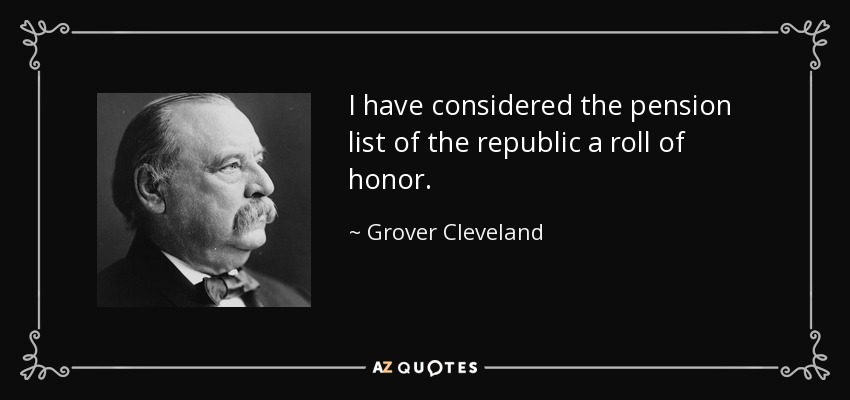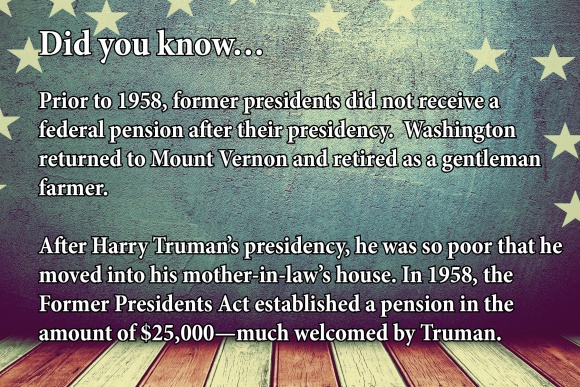Angela Lechtenberg, APR
In honor of President’s Day this week the history buff in me decided to look up some facts relating to how Presidents have dealt with pensions and pension legislation over the years. I found out some unique facts, and, since I am still somewhat new to this industry I learned quite a bit. Here are just a few.
Pensions go back to colonial days when their original intent was to lure people to become involved in the military. As the country came together and prospered, pensions became a strong force, mostly controlled by the federal government.
By 1886-87, during Grover Cleveland’s presidency, pensions had grown too fast and too large, and President Cleveland began tightening the reigns in the hopes to preserve the system and make it stronger. Cleveland vetoed many bills throughout his terms in the White House, and over half of them involved some sort of pension reform. He wanted to preserve the legitimacy of the pension system by making sure that the programs were legitimate and appropriate for the people.

In 1912 the first Presidential pension legislation was brought forth to provide pensions for former presidents. It failed. Legislation was not approved until 1958, when President Eisenhower signed the Former Presidents Act to allow pensions for former presidents upon leaving office.
When Truman accepted his pension, Herbert Hoover was the only other living president. While Truman needed the pension, Hoover was a multi-millionaire who had never even taken the presidential salary. He took the pension however, so that he would not embarrass Truman.

In 1974, President Nixon resigns in the wake of the Watergate scandal. The department of justice ruled that Nixon gets to keep his presidential pension since he was not removed from office, but resigned voluntarily. If he would have been removed from office involuntarily, he would have lost his presidential pension.
Some presidents, such as George W. Bush and Bill Clinton, have been fortunate enough to receive pensions for many years, mostly because they were relatively young when they left the presidency and have lived many years after retiring.
Interesting stuff huh? I hope you enjoyed your President’s Day, and this little history lesson. For the past 50 years, LAGERS has been, and continues to be an active force to maintain the integrity and legacy of pensions and their effect on the economy and the lives of their recipients. And while our history doesn’t go back to the very beginning, we’ve been around long enough to celebrate our golden birthday and will be here for you for many, many more. For more information on LAGERS history, check out our website and watch our social media channels for updates throughout this very special year in our history.

